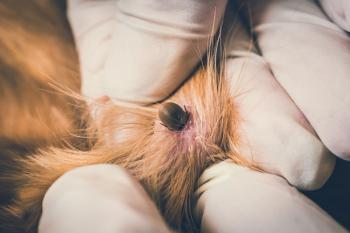
Study links cat parasite to risk of schizophrenia
National Report - A new study suggesting a link between infection with Toxoplasma gondii, a parasite commonly carried by pet cats, and schizophrenia may offer new hope and lead to possible treatments for the roughly 2 million Americans who suffer from the mental disorder, researchers say.
National Report — A new study suggesting a link between infection with Toxoplasma gondii, a parasite commonly carried by pet cats, and schizophrenia may offer new hope and lead to possible treatments for the roughly 2 million Americans who suffer from the mental disorder, researchers say.
According to the Centers for Disease Control and Prevention, about 20 percent of the U.S. population has antibodies to T. gondii, mostly from exposure to the parasite in cat feces or, in some cases, from eating undercooked beef or pork.
Previous studies into an association between the parasite and schizophrenia were based on single blood-serum samples taken after diagnosis. The new study, conducted among U.S. military personnel by researchers from Walter Reed Army Institute of Research and Johns Hopkins Children's Center, provides stronger evidence of the link because it is based on a much larger comparison of blood samples from people with schizophrenia and from healthy persons.
Military personnel give blood at the time they join a service branch, and every two years thereafter, and those stored samples were used in the study.
The key finding was that people exposed to the parasite infection had a 24 percent higher risk of developing schizophrenia.
Of 180 study subjects with schizophrenia, 7 percent were infected with T. gondii prior to diagnosis, compared to 5 percent among the 532 healthy individuals.
Though that difference is small, the researchers believe the study findings offer hope for better understanding of schizophrenia and possible treatments. One suggestion is that that aggressive use of antiparasitic drugs might at least halt progression of the disease.
"Our findings reveal the strongest association we've seen yet between infection with this very common parasite and the subsequent development of schizophrenia," says Robert Yolken, MD, one of the researchers at Johns Hopkins Children's Center.
While most people infected with the parasite never become schizophrenic, the infection might help trigger the illness in those who may be genetically predisposed to it, Yolken says.
The study's findings are reported in the January 2008 issue of the American Journal of Psychiatry.
While the study does provide greater evidence of the parasite's link to schizophrenia, other experts point out that many unanswered questions remain about lifestyle and other possible contributing factors.
Newsletter
From exam room tips to practice management insights, get trusted veterinary news delivered straight to your inbox—subscribe to dvm360.





